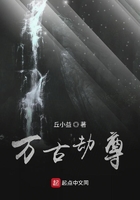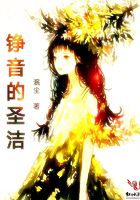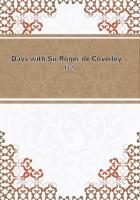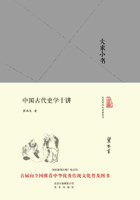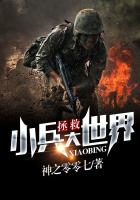They may say baseball is the same in the minor leagues that it is in the big leagues, but any old ball player or manager knows better.Where the difference comes in, however, is in the greater excellence and unity of the major players, a speed, a daring, a finish that can be acquired only in competition with one another.
I thought of this when I led my party into Morrisey's private box in the grand stand of the Chicago American League grounds.We had come to see the Rube's break into fast company.
My great pitcher, Whittaker Hurtle, the Rube, as we called him, had won the Eastern League Pennant for me that season, and Morrisey, the Chicago magnate, had bought him.Milly, my affianced, was with me, looking as happy as she was pretty, and she was chaperoned by her mother, Mrs.Nelson.
With me, also, were two veterans of my team, McCall and Spears, who lived in Chicago, and who would have traveled a few miles to see the Rube pitch.And the other member of my party was Mrs.Hurtle, the Rube's wife, as saucy and as sparkling-eyed as when she had been Nan Brown.Today she wore a new tailor-made gown, new bonnet, new gloves--she said she had decorated herself in a manner befitting the wife of a major league pitcher.
Morrisey's box was very comfortable, and, as I was pleased to note, so situated that we had a fine view of the field and stands, and yet were comparatively secluded.The bleachers were filling.
Some of the Chicago players were on the field tossing and batting balls; the Rube, however, had not yet appeared.
A moment later a metallic sound was heard on the stairs leading up into the box.I knew it for baseball spiked shoes clanking on the wood.
The Rube, looking enormous in his uniform, stalked into the box, knocking over two chairs as he entered.He carried a fielder's glove in one huge freckled hand, and a big black bat in the other.
Nan, with much dignity and a very manifest pride, introduced him to Mrs.Nelson.
There was a little chatting, and then, upon the arrival of Manager Morrisey, we men retired to the back of the box to talk baseball.
Chicago was in fourth place in the league race, and had a fighting chance to beat Detroit out for the third position.Philadelphia was scheduled for that day, and Philadelphia had a great team.
It was leading the race, and almost beyond all question would land the flag.In truth, only one more victory was needed to clinch the pennant.
The team had three games to play in Chicago and it was to wind up the season with three in Washington.Six games to play and only one imperatively important to win! But baseball is uncertain, and until the Philadelphians won that game they would be a band of fiends.
``Well, Whit, this is where you break in,'' Isaid.``Now, tip us straight.You've had more than a week's rest.How's that arm?''
``Grand, Con, grand!'' replied the Rube with his frank smile.``I was a little anxious till Iwarmed up.But say! I've got more up my sleeve today than I ever had.''
``That'll do for me,'' said Morrisey, rubbing his hands.``I'll spring something on these swelled Quakers today.Now, Connelly, give Hurtle one of your old talks--the last one--and then I'll ring the gong.''
I added some words of encouragement, not forgetting my old ruse to incite the Rube by rousing his temper.And then, as the gong rang and the Rube was departing, Nan stepped forward for her say.There was a little white under the tan on her cheek, and her eyes had a darkling flash.
``Whit, it's a magnificent sight--that beautiful green field and the stands.What a crowd of fans! Why, I never saw a real baseball crowd before.There are twenty thousand here.And there's a difference in the feeling.It's sharper --new to me.It's big league baseball.Not a soul in that crowd ever heard of you, but, I believe, tomorrow the whole baseball world will have heard of you.Mr.Morrisey knows.I saw it in his face.Captain Spears knows.Connie knows.Iknow.''
Then she lifted her face and, pulling him down within reach, she kissed him.Nan took her husband's work in dead earnest; she gloried in it, and perhaps she had as much to do with ****** him a great pitcher as any of us.
The Rube left the box, and I found a seat between Nan and Milly.The field was a splendid sight.Those bleachers made me glow with managerial satisfaction.On the field both teams pranced and danced and bounced around in practice.
In spite of the absolutely last degree of egotism manifested by the Philadelphia players, I could not but admire such a splendid body of men.
``So these are the champions of last season and of this season, too,'' commented Milly.``I don't wonder.How swiftly and cleanly they play!
They appear not to exert themselves, yet they always get the ball in perfect time.It all reminds me of--of the rhythm of music.And that champion batter and runner--that Lane in center--isn't he just beautiful? He walks and runs like a blue-ribbon winner at the horse show.I tell you one thing, Connie, these Quakers are on dress parade.''
``Oh, these Quakers hate themselves, I don't think!'' retorted Nan.Being a rabid girl-fan it was, of course, impossible for Nan to speak baseball convictions or gossip without characteristic baseball slang.``Stuck on themselves! I never saw the like in my life.That fellow Lane is so swelled that he can't get down off his toes.But he's a wonder, I must admit that.They're a bunch of stars.Easy, fast, trained--they're machines, and I'll bet they're Indians to fight.I can see it sticking out all over them.This will certainly be some game with Whit handing up that jump ball of his to this gang of champs.But, Connie, I'll go you Whit beats them.''
I laughed and refused to gamble.
The gong rang; the crowd seemed to hum and rustle softly to quiet attention; Umpire McClung called the names of the batteries; then the familiar ``Play!''
There was the usual applause from the grand stand and welcome cheers from the bleachers.
The Rube was the last player to go out.






